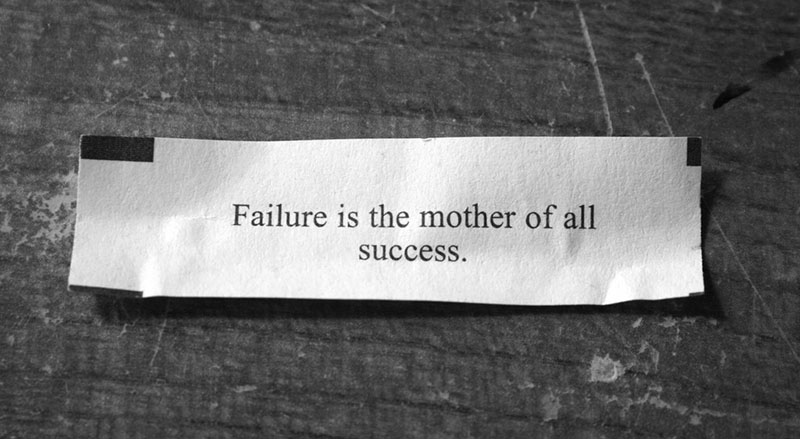Failure: An Essential Element of Success
A Reminder to Not Compare Failures to Others’ Successes
Last month, a Princeton professor tweeted an unusual version of his CV that listed all of the fellowships, grants, degree programs and publications from which he was rejected, according to an article in the Huffington Post. Johannes Haushofer, an assistant professor of psychology and public affairs, wrote this explanation as a preface to his list of failures and rejections:
Most of what I try fails, but these failures are often invisible, while the successes are visible. I have noticed that this sometimes gives others the impression that most things work out for me. As a result, they are more likely to attribute their own failures to themselves, rather than the fact that the world is stochastic, applications are crapshoots, and selection committees and referees have bad days. This ‘CV of Failures’ is an attempt to balance the record and provide some perspective.
Indeed, failure is an essential element of success, but that doesn’t make it feel any easier when it happens. A rejection can easily send you spiraling, making you forget that failure can be a stepping-stone to future triumph.
Among psychologists, education, and parenting experts, there’s a renewed interest in researching our response to failure and the way it shapes our eventual achievements. Studies show that grit, not just intelligence, can predict whether a student will have academic success, and that having a “growth mindset”—the belief that one can learn new skills and expand one’s intelligence—can influence achievement.
A Stanford psychology researcher recently found that young children’s views on their own intelligence—specifically, whether intelligence is fixed from birth or can be expanded—may be shaped by observing their parents’ reactions to the child’s failures. The study showed that if a parent reacts anxiously or negatively to a child’s poor grade instead of teaching the child that there’s something to be learned, the child is more likely to believe that intelligence is predetermined and cannot be changed.
Bottom line: If you’re feeling like a loser after a failed effort, it’s probably because you’re comparing your list of failures, which you know all about, to other people’s successes, for which you know only part of the story.
Photo: fortune via photopin (license)
